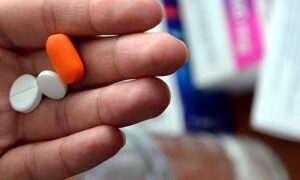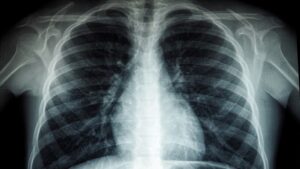[ad_1]
But sex drive varies between men, so how low is too low?
There’s no universally accepted definition of low libido, but the key is that it’s bothersome, according to experts.
So what exactly counts as annoying? If your sex drive has dropped, but it’s not a sign of serious health problems and it’s not “bothering” you, it might be a good idea to ignore it. But if low libido is causing personal stress, depression, or relationship stress, it may be time to seek help.
Partly this is a function of how long it lasts. It’s normal to occasionally lose interest in sex. For example, if you didn’t sleep well the night before or if you’re recovering from an injury, your libido may drop.
But if the loss of interest in sex lasts long enough to become bothersome, it’s time to see your doctor. It can be important for both your physical and mental health and the health of your close relationships.
What is low libido?
Men often confuse low libido with erectile dysfunction or ED.
ED is the inability to get or keep an erection. Libido is simply your desire for sex. While ED and low libido can occur at the same time and are often closely related, they are quite different problems.
Your libido is fueled in part by your overall physical health, including your genes and hormones like testosterone. But not everything is organic. Psychological factors such as stress and anxiety also affect your interest in sex, as do physical factors such as chronic illnesses.
The desire for sex naturally declines to some extent as we age, but there is no reason why it should necessarily disappear completely, even in our 60s, 70s and beyond.
Is low testosterone the culprit?
Testosterone is the main sex hormone for men. Low testosterone levels can decrease libido in some men. But not every man will lose his sex drive with this drop. Also, some older men may not be bothered by a drop in sex drive.
Testosterone levels decline in men as they age. And it also falls in men with type 2 diabetes and those who are obese. In fact, up to 35% of men over 45 have low testosterone or hypogonadism.
Normally, a man’s testosterone measures between 300 and 1,000 nanograms per deciliter in a blood test. Your doctor may consider low levels below 300, especially with symptoms of hypogonadism, which may include low libido.
How do chronic diseases and smoking affect libido?
Once men reach their 60s, they tend to have more chronic conditions, such as diabetes and heart disease. These can also affect sex drive.
How? Both diabetes and heart disease can lower testosterone levels in some men. These diseases can also lead to ED because they change the blood vessels in your penis, limiting your ability to get or keep an erection.
Smoking appears to have a similar effect, although scientists are still trying to figure out why. Male smokers aged 40 to 70 are almost twice as likely to develop ED.
And although ED and libido are different things, they are often closely related because men with ED often lose interest in sex.
The psychology of libido: Is it all in my head?
Mental health issues also play a role in loss of libido in men. This is especially the case in younger men, for whom low testosterone levels are less likely.
How does sleep affect your sex drive?
Sleep loss is another common libido killer. And it’s not just in older men. Jayadevan says he often sees young men at the start of their careers whose lost libido he traces to the long hours they spend at work.
Another problem could be the obstructive sleep apnea. This chronic condition interrupts your breathing throughout the night, making it difficult to settle into a deep, restful sleep.
The result is fatigue during the day which can reduce your sex drive. Sleep apnea is also linked to lower testosterone levels, another possible reason the disorder can affect your sex drive. Talk to your doctor about it if:
- You have trouble sleeping
- You are always tired during the day.
- Your partner says you snore loudly or stop breathing for short periods throughout the night.
What can you do?
The most important thing you can do in the beginning is to recognize the problem and report it to your doctor. For some men, this can be difficult.
- A medical checkup is a good place to start. Talk to your doctor for a complete health evaluation, including hormone levels and mental health. Tell them about any medications you are taking and any side effects you have noticed.
- Follow your doctor’s prescription for medication or treatment and keep track of side effects.
- If you smoke, consider quitting. Smoking is a cause of ED as well as conditions that lead to ED, which can reduce libido.
- Don’t forget the importance of a healthy diet and regular exercise, which can help improve physical and mental health and lead to a better sex life.
[ad_2]
Source link






